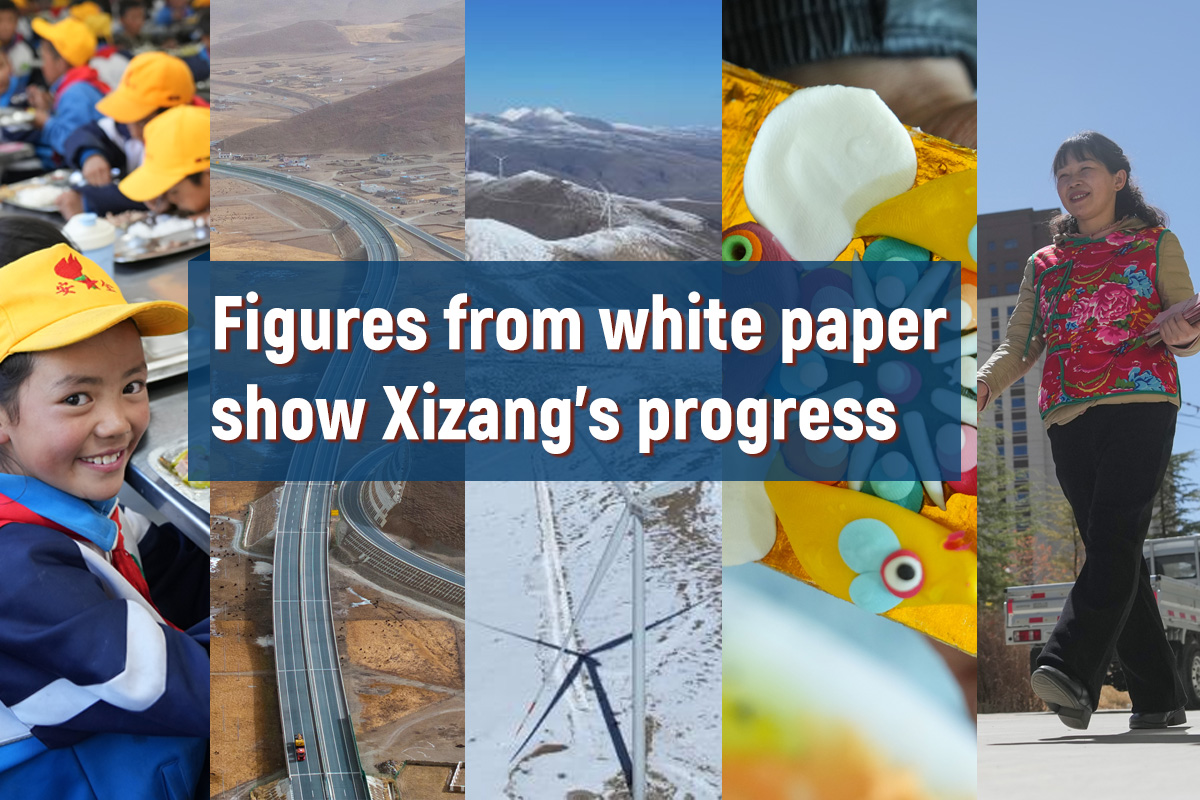China reinforcing logging ban in sustainable forestry quest

HOHHOT -- In spring, seedling workers shoveled a thick mantle of snow on the ground into a massive greenhouse nestled in China's largest state-owned forest reserve in the Greater Khingan Mountains, with this snow serving to water a 10-month-old spruce sapling in the country's north.
"The saplings can be transplanted outdoors after they have grown in the greenhouse for more than a year, having reached 12 cm to 15 cm in height. After another six months, they can be used for afforestation," said Fang Kunpeng, a senior nursery technician.
About 300,000 spruce seedlings are being cultivated in the greenhouse located in North China's Inner Mongolia autonomous region.
Tuesday marked the decade-long anniversary of a commercial logging ban in this forest area in the Greater Khingan Mountains.
Fang said the cultivation of seedlings is important for the restoration of degraded areas and for artificial afforestation aimed at expanding the forest coverage.
In recent years, more than 3 million new seedlings have been cultivated annually. In 2024 alone, 3.4 million spruce and larch saplings were used in afforesting an area covering 3,666.7 hectares in the forest.
FROM LOGGER TO RANGER
Fan Hongbin, 57, is a forest ranger at the Mordoga forest area managed by China Inner Mongolia Forest Industry Group Co., Ltd.
"Spring, which lasts until mid-June here, is critical for fire prevention. Our primary task is to remind and educate people about fire prevention, and to monitor fires in the forest," said Fan, while adding that their work also includes tree planting, monitoring tree pests and diseases, and checking for illegal activities such as logging and poaching.
Notably, a decade ago, Fan was a veteran logger who had followed in his father's footsteps in joining the state-owned forest farm in 1986.
"Fully aware of the national construction need for timber materials, all the workers worked hard cutting down trees with chainsaws," Fan recalled.
From 1952 to 2015, the forest provided more than 200 million cubic meters of commercial timber and forest by-products, while paying over 20 billion yuan (about $2.75 billion) in taxes.
China in 1998 began to implement a natural forest protection program in order to curb excessive consumption of natural forest resources, which caused deterioration of the ecological environment. On April 1, 2015, a ban on commercial logging was imposed in key state-owned forest areas in the Greater Khingan Mountains in Inner Mongolia.
BOOMING UNDERSTORY ECONOMY
The ban left 16,500 forestry workers like Fan in search of alternative work. In addition to serving as rangers and tree planters, they have also been employed via the company's continuous development of its diversified eco-friendly business -- taking advantage of abundant understory resources and improving ecological conditions.
The state-owned conglomerate has developed an agricultural and forestry economy industrial chain, with products including grain, fruit, herbal plants, vegetables, poultry and livestock, tapping into the significant potential of sustainable forest conservation and economic development, which not only plays a key role in preserving forest ecosystems but also boosts local incomes.
The understory business subsidiary of China Inner Mongolia Forest Industry Group Co., Ltd. was founded in 2020. It has developed more than 40 types of drinks, ranging from mineral water to a variety of plant and fruit juices -- such as birch juice, blueberry juice and seabuckthorn juice.
Hou Lichen, general manager of the understory company, said their products are extremely popular, and are being sold through both online and offline channels.
Its factory, featuring more than 40 employees, hires another 3,000 workers during fruit harvesting seasons. These are mostly forest workers, as this business is one of the solutions to increasing the incomes of such workers.
The ecological functional area of this forest totals 106,700 square kilometers, and includes 940,000 hectares of China's only concentrated contiguous virgin forest area.
"The forest area has undergone a transformation from 'selling wood' to 'selling carbon sinks.' Since the pilot phase of the forestry carbon sink project was launched in 2014, cumulative sales of carbon sink products have exceeded 60 million yuan," said Xing Junpeng, who is with Greater Khingan Inner Mongolia Carbon Sink Technologies Co., Ltd.
"It's rewarding to see the forest recuperate with lush green. We now all support the logging ban, and are happy to see new trees grow up on former tracks ground by timber transporting tractors," Fan said.
- China reinforcing logging ban in sustainable forestry quest
- Spring beats in Top Park
- More Chinese rescue volunteers rush to Myanmar in quake response
- Shanghai port completes first-ever ship-to-ship bio-methanol bunkering
- Taiwan students embark on Shandong tour
- China advances intl cooperation in managing trans-boundary pests






































